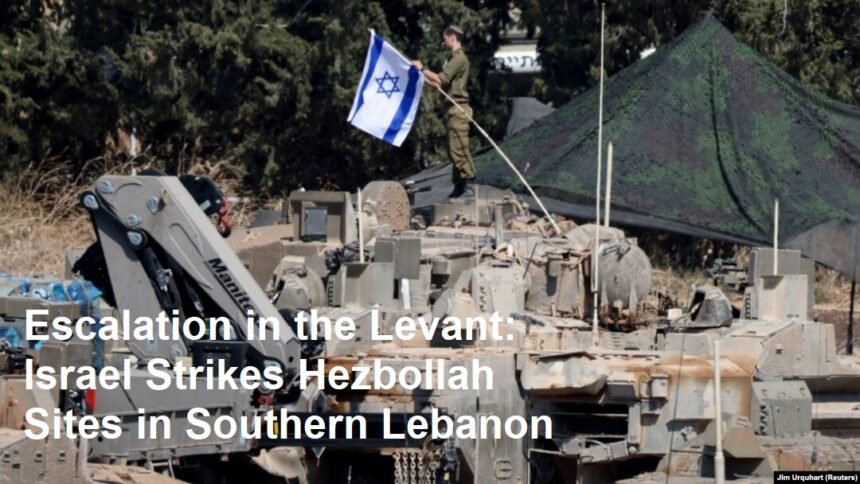Reports emerged on Sunday, April 21, 2025, detailing Israeli military strikes targeting Hezbollah military installations in Southern Lebanon. The operation, confirmed by both Israeli and Lebanese sources, marks a significant escalation in the already tense security situation along the volatile border. While details remain scarce and conflicting, early reports suggest the Israeli Defense Forces (IDF) employed both aerial and artillery fire in the attacks, reportedly focusing on sites believed to house weapons caches, training facilities, and command-and-control centers belonging to the Iran-backed Hezbollah organization.
The Israeli justification for the strikes centers on what it claims is a sustained increase in Hezbollah’s military activity and infrastructure build-up within Southern Lebanon, in direct violation of United Nations Security Council Resolution 1701, which ended the 2006 Lebanon War. IDF spokespersons cited intelligence indicating a growing Hezbollah presence aimed at launching future attacks against Israel, including the alleged deployment of sophisticated weaponry and the establishment of fortified positions along the border. They maintained that the strikes were a necessary preemptive measure to safeguard Israeli citizens and deter future aggression.
Hezbollah, in a statement released shortly after the attacks, condemned the Israeli aggression as a blatant violation of Lebanese sovereignty and vowed to retaliate. While the statement did not explicitly detail the nature of the response, it reiterated Hezbollah’s commitment to defending Lebanese territory against Israeli encroachment. This predictably escalatory rhetoric raises concerns about a potentially broader conflict, reminiscent of past confrontations between the two adversaries.
The strikes have drawn immediate international condemnation, with various global powers urging restraint and de-escalation. The United Nations has called for an immediate cessation of hostilities and urged both sides to adhere to the terms of Resolution 1701. Several European nations have expressed their concern over the heightened tensions and have called for a return to diplomatic dialogue to resolve the underlying issues fueling the conflict. The United States, traditionally a staunch ally of Israel, has issued a statement acknowledging Israel’s right to self-defense while simultaneously urging caution and emphasizing the need to avoid actions that could further destabilize the region.
The attacks come at a particularly sensitive time in the region, already grappling with multiple overlapping crises. The ongoing instability in Syria, coupled with simmering sectarian tensions and the persistent threat of extremist groups, creates a highly volatile environment. An escalation between Israel and Hezbollah could have far-reaching consequences, potentially drawing in other regional actors and further exacerbating the already precarious humanitarian situation.
Beyond the immediate security implications, the strikes raise fundamental questions about the long-term prospects for peace and stability in the Levant. The failure to fully implement Resolution 1701, coupled with the continued presence of heavily armed non-state actors in Southern Lebanon, underscores the fragility of the existing security arrangements. Without a renewed commitment to diplomatic engagement and a concerted effort to address the root causes of the conflict, the region risks spiraling further into violence and instability.
Looking ahead, the international community faces a critical challenge in preventing a full-blown war between Israel and Hezbollah. This will require a multifaceted approach, including robust diplomatic efforts to de-escalate tensions, sustained pressure on both sides to exercise restraint, and a renewed commitment to addressing the underlying security and political issues that continue to fuel the conflict. Ultimately, a lasting peace in the region will require a comprehensive solution that addresses the legitimate security concerns of all parties and promotes a more stable and prosperous future for the people of Lebanon and Israel. However, as tensions remain high and rhetoric escalates, the immediate future remains uncertain, leaving the region teetering on the brink of another potentially devastating conflict.












